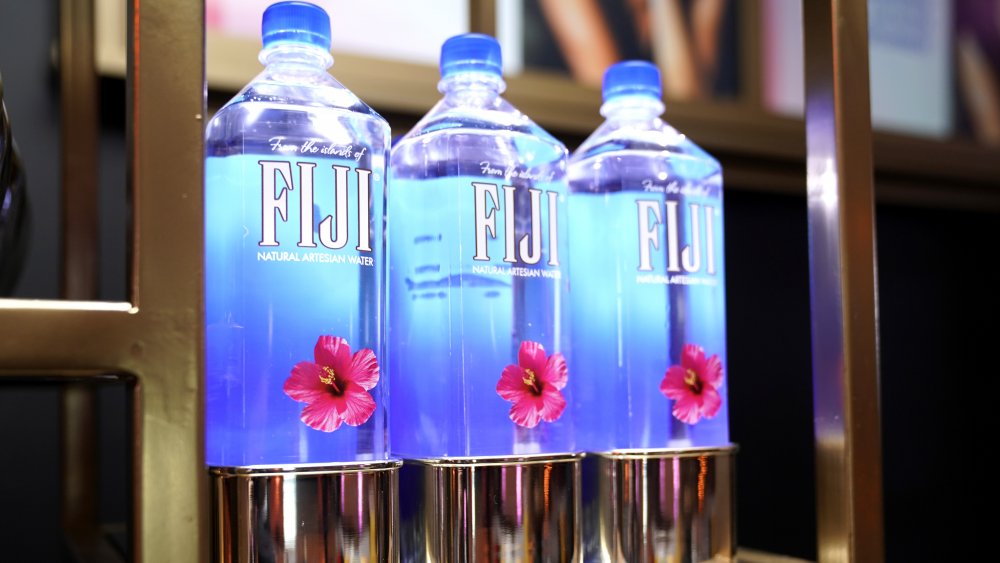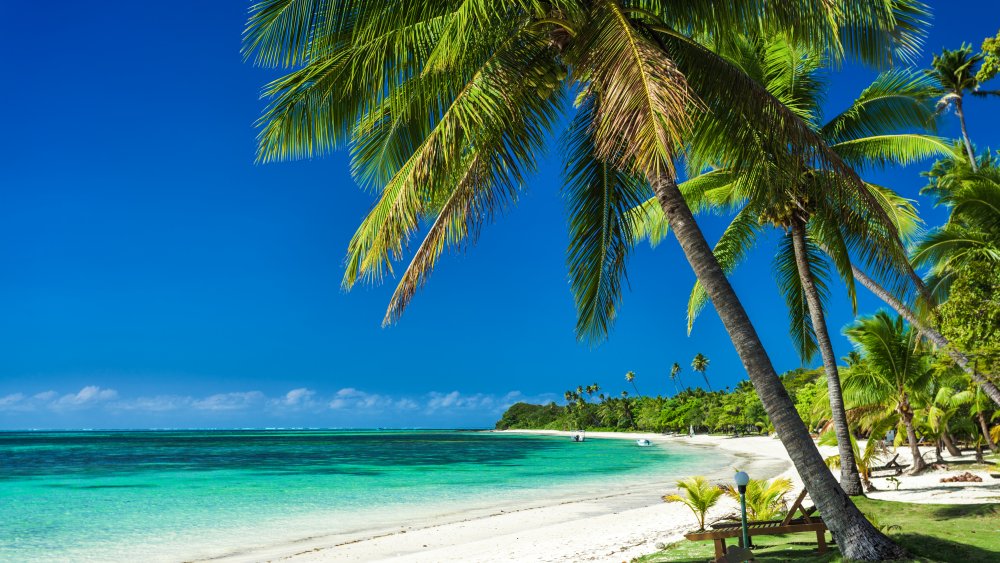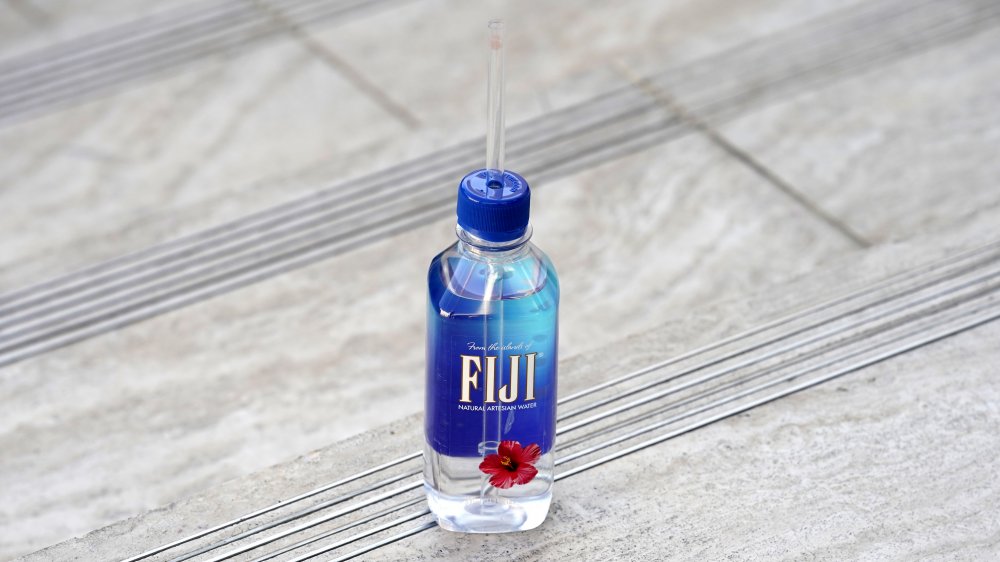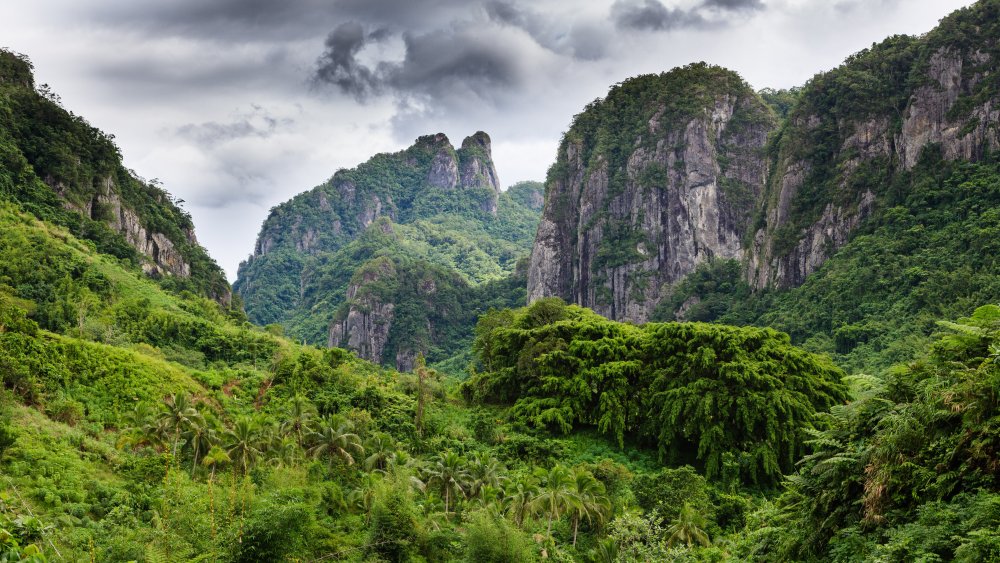Why Is Fiji Water So Expensive?
We may receive a commission on purchases made from links.
We drink water every day. We bathe in it, swim in it, and are mostly made of it. We can also buy it bottled from all over the world. There is French water, Italian water, Norwegian water, spring water, filtered water, distilled water, ethical water, and enhanced water. There is even bottled water labeled "no fat," something very few people are unclear about. So why is Fiji Water so expensive?
For an example of how big of a contrast there is between the price of Fiji Water and the price of other brands, a 1-liter bottle of Fiji Water at Target sells for around $2.59, while a 6-pack costs $6.99 (prices may vary depending on location). The equivalent bottle of Poland Spring, also water from a natural source as opposed to filtered, sells for 89 cents, and a 24-pack is only $4.39 — which is cheaper than a 6-pack of Fiji.
The cost of transporting Fiji Water
The first reason is obvious if you think about it. Fiji Water comes from Fiji, a Pacific island country that is almost 7,000 miles away. This means that it takes a long time and a lot of energy for the water to get transported from Fiji to the United States. To put that in perspective, to get from New York to Fiji, one would have to take an 18-hour plane ride, and then, upon arriving in Fiji, take a four-hour drive along King's Highway, a two-lane highway, to get to the water's source (via Fast Company). Due to the logistical aspects of getting the water from Fiji to the United States, half of the wholesale cost of Fiji Water is just to cover the cost of transporting it.
Interestingly, Fiji Water advertises their pledge to sustainability on the company web site: "As part of its longstanding dedication to environmental sustainability, Fiji Water launched a comprehensive plan to transform its use of plastic while promoting a circular economy." This actually contributes to the high cost of Fiji Water. With the less than favorable view of water bottles and their negative impact on the environment, Fiji has spent millions on marketing itself as a green company (via Mother Jones).
The cost of Fiji Water's image
Fiji is the most imported water in the United States and has a bit of status behind its name (via Money Inc.). For example, at the Peninsula Hotel in Beverly Hills, the minibars in all the rooms hold Fiji Water. Previously, the minibar held Evian, and at that time, Diet Coke was the best selling minibar item (via Fast Company). This means that Fiji Water is in high demand, and for those who remember their Economics 101, high demand is generally associated with higher costs.
The water bottles for Fiji Water have a different look from every other brand of bottled water. Other bottled water comes in a round bottle — even other upmarket brands — but Fiji Water bottles are square, which adds to production costs. The plastic used to make the bottles is the highest quality PET (polyethylene terephthalate) plastic (via Fiji Water). On those plastic bottles, Fiji Water prints six different labels, to "communicate a different part of the Fiji Water story," according to the company. These labels include "Earth's finest water," "natural electrolytes", "natural artesian", "the Fiji Water Foundation," "the soft taste of solid rock," and "untouched".
The origin of Fiji Water
This leads to anothert high-cost aspect of Fiji Water. The company uses artesian water from Fiji, which the company explains, "Artesian water comes from an aquifer; a naturally formed underground chamber." The aquifer is under layers of earth and rock, protecting the water from external contamination. This water doesn't flow out in the open like water from a stream, so the aquifer must be tapped to access the water.
Running a factory in Fiji comes with its own set of costs for the company. The Fiji Water plant runs 24 hours a day, which requires electricity. The local utility structure of Fiji cannot support supplying that much electricity, so to solve the problem, Fiji Water supplies its own electricity by running three big generators powered by diesel fuel.
Fiji Water also spends money on marketing to appeal to consumers. Fiji Water prices its water higher to make consumers think its better, using the idea that the most expensive product must be the best one. This is clever when you consider that consumers pay two to four times the price of gasoline for bottled water, a product that is available for free from the tap in every sink, which is one reason you might be tempted to forgo buying bottled water altogether.



